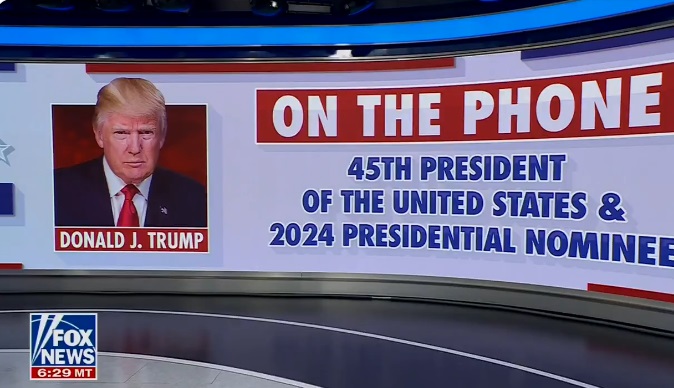Former President Donald Trump expressed his disappointment in actress Julia Roberts over her involvement in a campaign ad supporting Vice President Kamala Harris. The ad encourages women to keep their voting intentions secret from their husbands, a concept Trump found troubling. During a call with Fox & Friends, he emphasized how difficult it is to imagine a wife concealing her voting choice from her husband, questioning the underlying implications of such secrecy in a marital relationship. Trump suggested that this approach speaks volumes about the state of relationships and communication within families.
In his critique, Trump underscored the importance of transparency and open communication within marriages, arguing that couples typically share their political views, even in challenging or strained relationships. He remarked, “Can you imagine a wife not telling her husband who she’s voting for?” This sentiment reinforced his belief that healthy partnerships involve mutual respect and dialogue, particularly regarding significant decisions like voting. He suggested that Roberts may reconsider her stance in the future and possibly feel embarrassed about this campaign.
The advertisement, produced by the progressive evangelical group Vote Common Good, showcases two women discreetly casting their votes for Harris. The narrative highlights a scenario in which these women feel compelled to hide their choices from their husbands, playing to a theme of individual autonomy versus familial transparency. In this portrayal, the ad seeks to empower women to make independent voting decisions despite potential opposition from their spouses, thereby promoting a message of female agency.
Throughout the ad, the dialogue between the women and the husbands underscores the secretive nature of their voting experiences. As one woman reassures her husband of her choice, she echoes a cringeworthy sentiment of secrecy by stating, “Remember, what happens in the booth, stays in the booth.” This line, delivered by Roberts at the end of the ad, further emphasizes the notion that voting is a private matter and resonates with the broader campaign’s goal of encouraging women to embrace their electoral choices without fear of judgment.
Trump’s reaction underlines the contentious political climate surrounding this election cycle, where celebrity endorsements and campaign advertisements can provoke strong opinions. His disapproval of the ad showcases his perspective on traditional family values and the importance of open dialogue between partners regarding political beliefs. By calling out the ad’s premise, Trump aims to challenge the narrative that suggests women must hide their choices, instead advocating for a more communal approach to such significant decisions.
As the election approaches, the ad and Trump’s response pose questions about the impact of celebrity voices in political discourse and the dynamics of intimate relationships shaped by differing political beliefs. The stark contrast between the ad’s message and Trump’s interpretation invites a broader conversation about gender roles, marriage, and personal choice in voting, ultimately reflecting the complexities inherent in navigating personal and political identities in today’s society.

